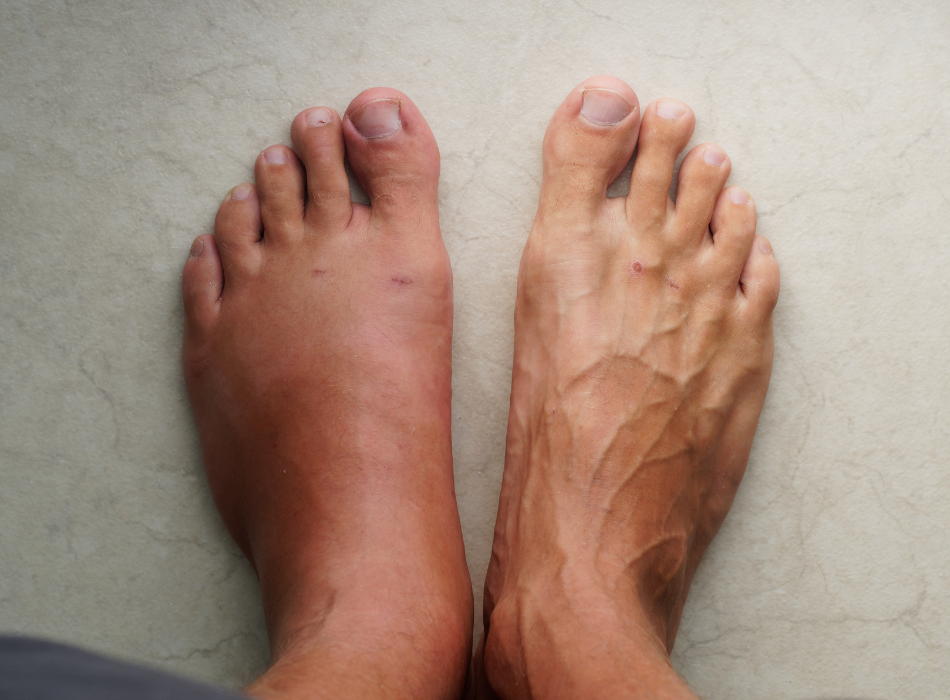We all know the feeling of puffy ankles after a long day on your feet. But sometimes, swollen feet can be a sign of something more serious. Here’s what you need to know about foot swelling symptoms and when to see a doctor.
Understanding Foot Swelling
Foot swelling, also known as edema, occurs when fluid builds up in your tissues. This can happen for a variety of reasons, some harmless and others requiring medical attention.
Common Causes of Foot Swelling:
- Simple overuse: Standing or sitting for long periods can cause temporary foot swelling. Gravity pulls fluid down to your feet, leading to that puffy feeling.
- Injury: Sprains, strains, and fractures can all cause inflammation and swelling in the feet.
- Pregnancy: Swelling in the feet and ankles is a common side effect of pregnancy, especially in the later stages.
- Certain medications: Some medications, like blood pressure medications or hormone replacement therapy, can cause foot swelling as a side effect.
- Medical conditions: Certain medical conditions, such as heart disease, liver disease, or kidney disease, can also cause foot swelling.
Foot Swelling Symptoms to Watch Out For:
While some foot swelling is normal, there are some symptoms that warrant a trip to the doctor:
- Sudden or severe swelling: If your foot swells up quickly and significantly, especially if it’s accompanied by pain or redness, it could be a sign of a blood clot or infection.
- Swelling that doesn’t improve with rest: If your feet are swollen even after you’ve been elevating them for a while, it could be a sign of an underlying condition.
- Swelling that’s only in one foot: Swelling in just one foot, particularly if it’s accompanied by pain or redness, could be a sign of an injury or infection.
- Other concerning symptoms: If you experience symptoms like fever, shortness of breath, or difficulty breathing alongside foot swelling, seek medical attention immediately.
Tips for Reducing Foot Swelling:
If you’re experiencing mild foot swelling, there are some things you can do to help reduce it:
- Elevate your feet: When you’re sitting or lying down, prop your feet up above the level of your heart.
- Apply ice: Apply a cold compress to your feet for 15-20 minutes at a time, several times a day.
- Reduce your salt intake: Eating too much salt can contribute to fluid retention.
- Wear loose-fitting shoes: Tight shoes can restrict blood flow and worsen swelling.
When to See a Doctor
If your foot swelling is severe, sudden, or accompanied by other concerning symptoms, don’t hesitate to see a doctor. Early diagnosis and treatment of any underlying condition can help prevent complications. Remember, your feet are the foundation that carries you throughout the day, so don’t ignore any concerning signs!




